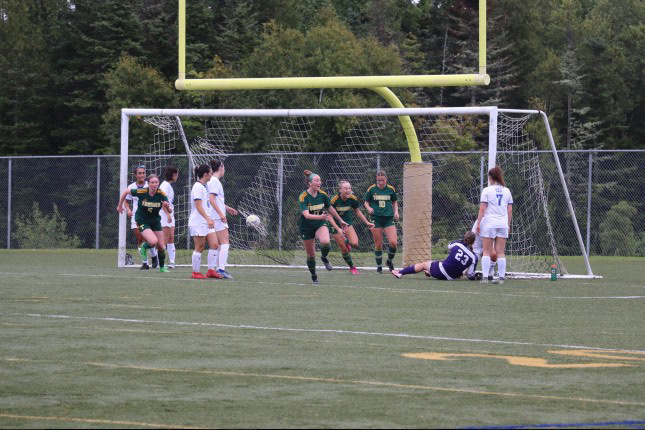As a new soccer season starts in some regions around the world, one question remains unasked: are players getting burnt out by the number of games in their season?
On Sept. 17, Manchester City midfielder Rodri Hernandez said players were “close” to taking strike action over their increased workload.
The Spanish midfielder played 63 competitive games for club and country teams last season and saw 6,107 minutes of game time between July 2023 and July 2024. Manchester City played around 50 games a season 10 years ago.
Now, he has a long-term injury that will leave him out for the rest of the season.
This has raised concerns about whether the players can perform at the highest level with less than 48 hours in between games.
Such a case has resonated with STU soccer teams. The head coach of the women’s soccer team David Itoafa said that halfway through the current season, the team has six to seven injured players.
“It’s not really a sustainable system for anyone, with the number of games in such a short amount of time,” said Itoafa.
To tackle this challenge, Itoafa completed one of the biggest recruiting classes in program history with 29 players on the roster.
“It’s getting yourself mentally ready for you to play Saturday and Sunday. Sometimes you play on a Wednesday as well,” said Itoafa.
One of the losses for the rest of the season is third-year soccer player Jayci Peck, who tore her ACL and sprained her LCL playing against Mount Saint Vincent University (MSVU) during the home opener weekend.
For Itoafa, this type of injury could have been prevented if there was more resting time in between games.
“It’s not taken into consideration the amount of effort it takes to prepare yourself mentally but also physically,” said Itoafa.
Peck does not have an official answer of how long she is going to be out, but it could take “possibly six months or more” for her to get back into playing.
“The moment it happened I heard a pop in my knee and I knew I was out for the season,” said Peck. “This was heartbreaking obviously as last season I was also hurt with a bad ankle sprain leaving me to miss over half of last season’s games as well.”
The team has shown emotional support to Peck throughout this process, who has accepted that this was “a lesson in some way.”
“We all love to play the game, that’s the whole point we are here, but we also need rest and recovery,” said Peck. “It’s hard to grasp that one day you are starting a game and by the end of that same game you won’t be able to play again for months to come.”
Goalkeeper for the STU men’s soccer team, Luke Ewen, said that it is hard to understand how much fatigue an athlete goes through on a weekend when there are less than 24 hours in between games.
“It’s like those long classes that don’t end on a Tuesday and you’re active the whole time, running, sprinting, talking,” said Ewen.
He said that sometimes players have to “play through the injuries” because of how short the Atlantic Collegiate Athletic Association season is.
“You know you’re on that squad, but you can’t do anything. You’re on the bench. You just got to be positive and be supportive and do what you can,” said Ewen.

